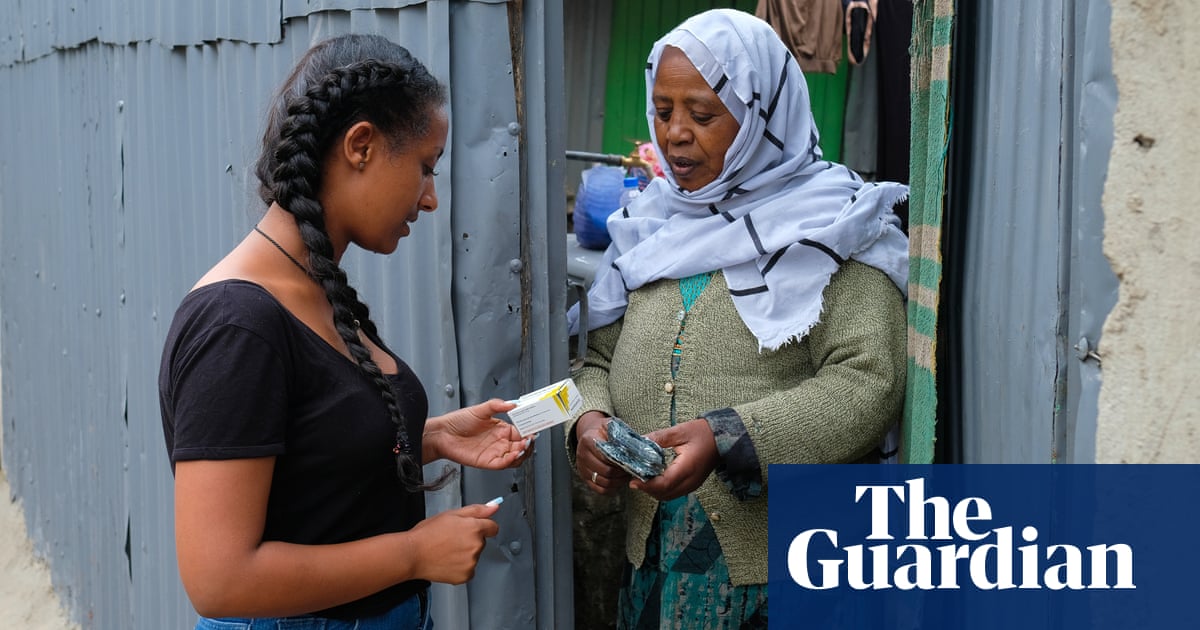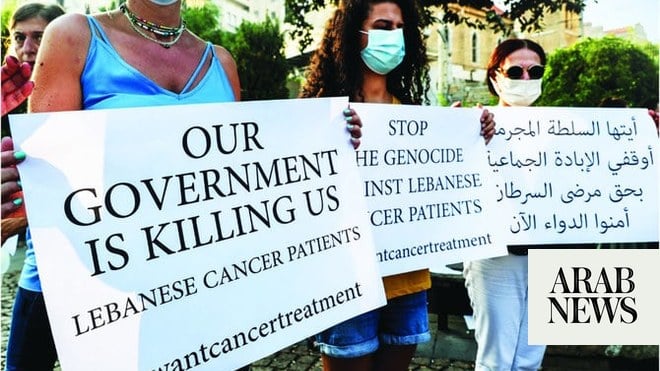
Filagot Tadele, a palliative care nurse, spends her days crisscrossing Ethiopia’s capital, Addis Ababa, caring for cancer and HIV patients. Many of them are slowly dying and in extraordinary pain.
She carries with her a box of assorted medicines, but lacks the one drug she needs to relieve suffering: oral morphine. The powerful opioid is not made in Ethiopia and shortages of imported medicines mean it has disappeared from pharmacy shelves.
Filagot makes do with painkillers usually recommended for mild aches and pains. These barely dent the agony endured by patients like Marset Ermelo, who is undergoing chemotherapy and has advanced bowel cancer.
“It’s really frustrating,” says Filagot. “Our patients are like our family – the relationship is really strong. So if you feel you are not doing anything to help them, it hurts a lot.”
Marset is in so much pain she struggles to stand up or find the energy to speak. Morphine is traded on the hidden market, but neither Marset nor Hospice Ethiopia, the organisation that employs Filagot, can afford the sky-high prices it fetches.
Visiting Marset’s flat on the top floor of a ramshackle housing estate, the best Filagot can do is listen and offer emotional support as her patient describes the symptoms. “The pain is getting worse daily, it is hard to describe,” says Marset.
Such suffering gives a glimpse into a vast, hidden opioid crisis that is the reverse of what is happening in wealthier countries. While addiction to unregulated opioids such as fentanyl is claiming tens of thousands of lives every year in rich countries, millions more in the developing world are dying in agony for want of medication.
The poorest countries receive just 1% of the global morphine supply, despite having 50% of the world’s people, according to a report published in 2017 by the Lancet’s commission on palliative care and pain relief. In Nigeria, for example, there is only enough morphine available to meet 0.2% of needs. In Canada, by contrast, there is enough to meet more than 3,000% of national needs.
The result is “absolutely unnecessary suffering”, says Ephrem Abathun, executive director of Hospice Ethiopia. His charity is the only organisation dedicated to providing palliative care services in Ethiopia, Africa’s second-biggest country by population, with more than 120 million people. Last year, Hospice Ethiopia helped 280 chronically and terminally ill people in Addis Ababa. Tens of thousands more sick Ethiopians suffer with no relief at all.
“They are experiencing the worst possible pain,” says Ephrem. “I have had some patients who ask for euthanasia just because of their pain. Especially the ones who have experienced the help of morphine, when they don’t have access to it again – it is really traumatic for them.”
The World Health Organization calls morphine “a gold standard for pain relief” and has included the opioid in its essential medicines list since 1977. It is strong, fast-acting and easy to administer. It is also cheap. Making morphine available as part of a wider palliative care package would cost just $3 a head in poor countries, according to the Lancet. When prescribed as a drinkable syrup, it is too weak for addicts.
Yet in many African countries, doctors are often reluctant to prescribe the drug, seeing it as addictive or dangerous. This stems from a lack of training, with palliative care rarely featuring on medical school curricula, says Dr Yoseph Mamo, one of the handful of Ethiopian health professionals with palliative care expertise.
Low investment in palliative care also limits morphine’s availability, as do outdated policies aimed at restricting use and low doctor-to-patient ratios. In countries such as Ethiopia, foreign currency shortages mean that imported drugs are prohibitively expensive, and poor supply-chain management produces regular shortages.
The impact of morphine can be transformational. “If I get morphine, my pain is more manageable and I can talk to my family and sleep,” says Marset. “If I don’t take morphine, I cannot speak.”
End-of-life care has no priority in the national health strategy, admits Elubabor Buno, head of medical services at Ethiopia’s Ministry of Health, where the focus has been on bringing down infant mortality and tackling diseases such as malaria.
“The main constraint at the ministry is the limited budget,” says Elubabor. Ethiopia allocates 5% of its budget to health, despite being a signatory to the African Union’s 2001 Abuja declaration, which commits it to spending 15%.
Things are slowly changing. Taking the lead from Uganda’s innovative approach, which focuses on free access to morphine, several African countries including Rwanda, Malawi and South Africa have integrated palliative care into their health systems. Ethiopia has more work to do, but has developed national guidelines for palliative care, and a plan to produce morphine locally “is in the pipeline”, says Elubabor.
However, homegrown production is not a panacea. Ethiopia once had a company that made oral morphine, but it stopped production due to lack of demand from doctors fearful of prescribing the drug. Guidelines cannot be followed by doctors unless they have proper training, says Yoseph.
Faced with a health system that does not offer them effective treatment, some terminally and chronically ill patients turn to traditional remedies. Kedija Deltera, a breast cancer patient, uses crushed black cumin mixed with honey, applied two to three times a day to treat her pain. It is a remedy she learned from the Qu’ran. Many Christian patients use holy water in a similar way, says Ephrem at Hospice Ethiopia.
Kedija often feels discomfort in her chest and legs, and itching in her arms and hands where her lymph nodes have swollen. When she stands, she feels dizzy, and that forced her to leave her job as a security guard.
“But when I am taking morphine, I feel very little pain. I can live almost as normal,” she says. But, like Marset, she cannot pay hidden market prices, so has to do without: “It’s too expensive.”
Yoseph spends part of his time as a volunteer, teaching other health professionals how to integrate pain relief into their daily work. He says the importance of palliative care has gone unrecognised for too long.
“You can still do something for people who can’t be cured,” he says. “You can give them their quality of life back and return their dignity. It is saying to the patient, ‘I will not abandon you, I will be there for you.’ And that is a very important thing.”












